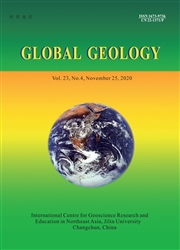Mode decomposition methods and their application in ground penetrating radar data processing
作者:ZHOU Weifan,ZENG Zhaofa,LI Jing
摘要:Ground Penetrating Radar(GPR) method is a widely used method in engineering geophysical exploration at home and abroad. Compared with other geological exploration methods, the GPR method has the advantages of faster detection, higher resolution, convenient operation and relatively low detection cost. With the wide application and continuous development of GPR methods, the processing and interpretation of GPR data is increasingly important. The authors introduce the development process and current situation of the modal decomposition method in processing GPR data, summarize the principles of four modal decomposition methods, and compare their advantages and disadvantages in ground penetrating radar data processing. The results show that when the quality of GPR data is good and the noise is small, Empirical Mode Decomposition(EMD) and Ensemble Empirical Mode Decomposition(EEMD) methods can be used for processing, whereas when the noise interference is large or the underground medium is complex, Complete Ensemble Empirical Mode Decomposition(CEEMD) and Variational Mode Decomposition(VMD) methods can be used for processing. The four modal decomposition methods have their own advantages and disadvantages in GPR data processing. At present, the processing of GPR data by CEEMD and VMD methods is the focus of research and discussion at home and abroad.
发文机构:College of Geo-Exploration Science and Technology Ministry of Land and Resources Key Laboratory of Applied Geophysics
关键词:GroundPENETRATINGRADARMODEDECOMPOSITIONIMFmode-mixing
分类号: P[天文地球]
- Application of isolation forest to extract multivariate anomalies from geochemical exploration data
- Zircon U-Pb geochronology and geochemistry of granite in Huoluotai area of northern Great Hinggan Range
- Geochronology and geochemistry of Baicaogou tuff in Yanji,NE China and its tectonic implications for Early Cretaceous
- Application of high-density resistivity method for assessing construction safety of Shimodong tunnel in Helong City of Jilin Province
- Computation of waves scattered by inhomogeneous velocity gradient using generalized Born approximation
- Combination of structure tensor and tilt angle in the edge detection of potential field data
- Method for predicting cuttings transport using artificial neural networks in foam drilling
- Logging interpretation method for reservoirs with complex pore structure in Mesozoic-Cenozoic faulted basin around Daqing exploration area
- Structure analysis of shale and prediction of shear wave velocity based on petrophysical model and neural network
- Geochronology,geochemistry and geological significance of Early Cretaceous volcanic rocks from Niangniangshan Formation,Ningwu Basin,middle and lower reaches of the Yangtze River


